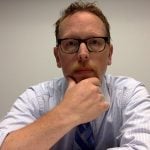 Earth conservation
Earth conservation
People are political. The world we live on is not.
After Hurricane Michael and the wildfires that mostly destroyed Paradise, Calif., last year, we had an editorial discussion about climate issues and credit unions. This discussion came about due to off-the-record comments from some credit union officials attempting to recover from the natural disasters they had just experienced.
Recommended For You
Those comments remain off the record and, to those people, their comments about climate change impacting their lives felt so radical that they would most likely experience negative repercussions from their members if they heard their credit union leaders say these things. To help characterize these statements, I'd say they were observations of the moment and along the lines of, "We are really seeing things get worse due to climate change," or things like, "I'm watching these changes happening in my life and it's scary." Again, that's me paraphrasing.
For these people, saying things like that out loud in certain parts of the country appears to be something along the lines of admitting, "I don't believe in God," or "Al Gore and Obama were right!"
A political fallout from saying something about science.
As a team, we decided it would be a good idea to take a look at environmental issues and what, if anything, credit unions are doing as it relates to the continued negative changes we are experiencing due to the warming of our planet.
We approached the idea of doing an entire issue on this topic with the factual starting point of these two things: We believe in science and we believe in math.
We wanted to take a look at this issue and peel back the first layer of the onion to see where credit unions stood on the issue and how it may or may not impact business decisions, member engagement and possible growth opportunities. This topic was big enough that we asked our entire team to contribute and report their findings from their prospective reporting beats.
What we found was an interesting mix of more progressive business decisions, where some credit unions were genuinely concerned about the health and financial futures of members. Other credit unions were taking a slower and possibly more thoughtful approach while they did more research about what members might want, or negatively or positively react to, when it comes to connecting the brand of a credit union to environmental messages.
Since last year, I've read several research reports from different climate research organizations. I've signed up for numerous email distribution lists from climate news reporters and scientific organizations. What's interesting is since we started working on this print issue, The New York Times began a new "Climate Fwd:" weekly newsletter. That should give you some indication of the significance of the topic to the general public.
I've buried my brain as far as it can go into preparing for this special issue. One piece that was missing for me was interviewing someone whose life has been dedicated to studying our climate.
A few months ago, I sat down with Dr. Peter Sousounis, vice president of climate research at AIR Worldwide, headquartered in Boston, Mass. His organization conducts risk management studies for clients and creates catastrophe models for insurance purposes. Sousounis was previously a meteorology professor at the University of Michigan, and has an M.S. in Meteorology from the Massachusetts Institute of Technology, as well as a PhD. from Pennsylvania State University. In the 1990s he was also involved with a group of scientists working with former Vice President Al Gore on climate studies. So, he's smart, and he gently patted me on my head when I showed him my B.A. in journalism and how I can hold three glasses of water in one hand.
The models his team creates are designed to help manage risks from natural catastrophes across the United States, Asia and Europe.
Sousounis said the work he does for large and small organizations has shifted from a "what-if" mentality to a resiliency mind set of how the business landscape will look after a natural disaster. When it comes to his Global Resiliency Practice for developing insurance risk models concerning mortgages and credit unions making those loans, those financial institutions are looking at a much bigger picture.
"They don't want to make those loans to an area with a particularly high risk that would have a catastrophic loss, a 100% loss, so to speak, within the lifetime of the mortgage," he said. "They might look at a resiliency practice to build seawalls to make it a more secure investment."
In this instance, Sousounis is talking about the "sunny day flooding" that has become the new normal in Miami and Miami Beach, Fla. Sunny day flooding means exactly what it says – it floods without any rain. Several climate prediction models show an 11.2-inch increase in the water levels in that area in the near future. Some models have sea levels rising even more, into the 13- to 18-inch range.
Jeff Goodell, author, climate researcher and reporter, said this about Miami's future: "Miami as we know it today, there's virtually no scenario under which you can imagine it existing at the end of the century."
Sousounis said he has similar concerns about the future of most of the eastern United States. "Anywhere along the Gulf Coast, Florida, anywhere along the Mid-Atlantic going north to Boston would be areas that everyone should be concerned about." In simple terms, he's concerned this entire area will be uninsurable due to rising sea levels.
He continued, "People need to decide at what point that they say, 'Hey, we definitely have to do something about it.'"
Or, we don't. It's a choice that people, businesses and politicians make.
"Scientists have been focused on climate change for decades really," Sousounis said. "Now they are seeing it for real and are asking questions about, are we really prepared?"
The Earth's climate isn't registered to any political party. It doesn't worship a certain god. It doesn't make a point to use reusable grocery bags. Those are things people do. And the people decide what they do or don't do when it comes to the environment.
The science and math tell us to be prepared for the inevitable climate catastrophe. It's on us to do something to either keep that climate clock from moving forward or to even roll back time, if possible.
What we've discovered in the credit union space is encouraging. If we're going to have any members left to serve, more drastic steps need to be taken today.
 Michael Ogden
Michael Ogden Michael Ogden is editor-in-chief for CU Times. He can be reached at [email protected].
© Touchpoint Markets, All Rights Reserved. Request academic re-use from www.copyright.com. All other uses, submit a request to [email protected]. For more inforrmation visit Asset & Logo Licensing.







